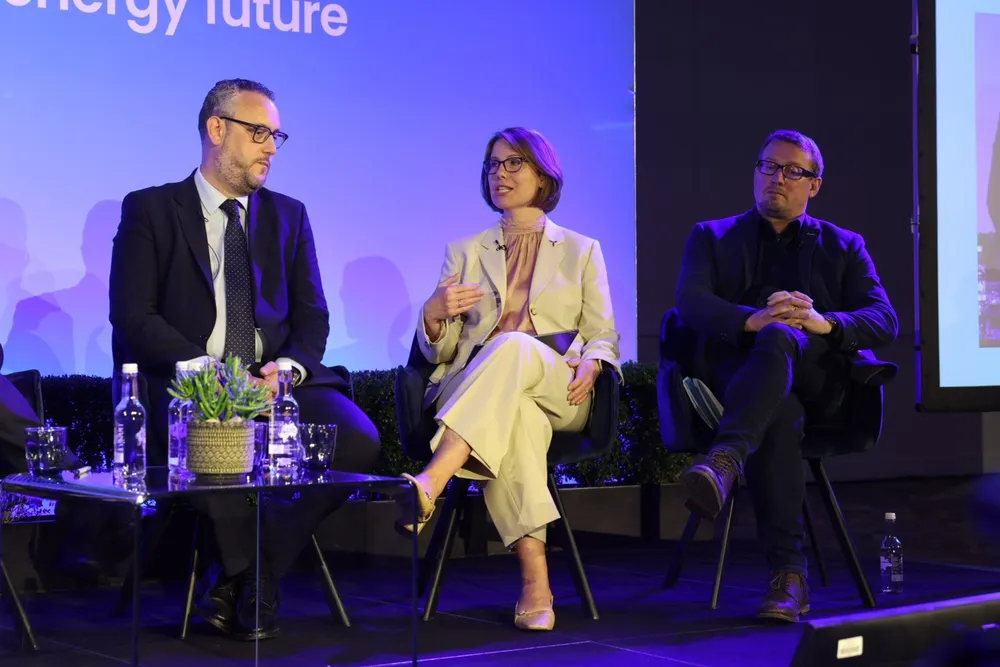Hitachi chief on how supplier was burned by Orsted Hornsea 4 pullout
Risks of entering into agreements to supply offshore wind projects that have not reached final investment decision go both ways, stressed Japanese-owned supplier’s UK chief

Orsted’s decision to halt development of its Hornsea 4 offshore wind array in the UK left Hitachi Energy with “massive gaps” in its order book, said an executive at the power equipment giant, stressing the risks it faces entering agreements with such projects.
The Japanese-owned supplier agreed last year to provide power electronics technology for the Danish developer’s 2.4GW Hornsea 4 project. That included next-gen grid stabilisation technology that would be making its debut in the European offshore wind market.
Fleming, speaking on 18 June on a supply chain panel at industry body RenewableUK’s Global Offshore Wind summit in London, was emphasising that offshore wind developers are not the only companies that face risks in making commitments to projects that may face significant setbacks – such as Hornsea 4 – or fold entirely.
Peter Haughie, EPCI Associate Director at Ocean Winds, said that deciding when to commit to suppliers is a “big part of the procurement decision-making”.
There is a “big benefit” of committing to suppliers early, he said. “The counterbalance to that is maintaining competition,” he said.
The panel’s moderator, Ajai Ahluwalia, head of supply chain at RenewableUK, said that committing early must represent a “huge risk” to developers who may not have even secured a CfD at that stage.
There’s “no way around it,” said Haughie, stressing the importance of working “hand-in-glove” with suppliers in the development phase of the project.
Fleming said that the concept of booking capacity is “very interesting.”
“Obviously, I recognise there is a risk to the developer or the utility company in order to do so,” she said – because booking capacity is “not for free.”
“And it comes with a number of benefits as well, right? So we'll start engineering, so there's a lot of early work that is going on.” There are she added “a few different steps before we get to the real commitments.”
“It's not just the developer or the utility taking the risk,” stressed Fleming. “We are taking the risk as well.”
Suppliers like Hitachi sell that slot on the “assumption that the project will go ahead,” even if the fact it may not have reached final investment decision yet “is also a risk.”
This is what Hitachi saw recently with Hornsea 4, she said.
The benefit of early engagement and visibility is being able to start work much earlier, she said, and “find optimisations.”
Hitachi is currently making huge investments in its production facilities around the world, said Fleming. “We can only do that on the basis of the confidence that exists in the industry.”
(Copyright)